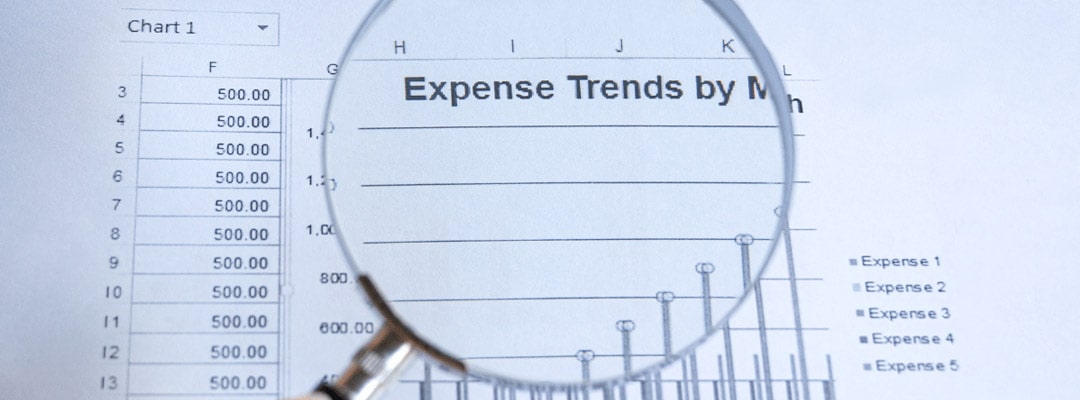Are you worried about the impact of inflation on your retirement savings? You’re not the only one!
Inflation can significantly diminish your purchasing power and threaten your financial future. In this article, we’ll break down how rising costs affect your savings, fixed-income investments, and retiree benefits. Plus, we’ll share effective strategies to help you protect and grow your wealth against inflation.
For additional financial resources, be sure to visit the Institute of Financial Wellness (IFW) site!
Key Takeaways
- Understanding the relationship between inflation and longevity planning must be step one for maintaining purchasing power and financial stability throughout retirement.
- Inflation can reduce your retirement savings, so it’s important to use strategies like boosting contributions, diversifying your investments, and adding inflation-protected securities.
- Regularly checking and updating your financial plans can improve your retirement planning in times of inflation.
Be sure to request your retirement score today to see if you’re on the right path to achieving your retirement goals!
Understanding Inflation & Longevity Planning: How Are The Two Related?

Do you feel like your paycheck just doesn’t stretch as far as it used to? That’s inflation at work.
Inflation measures the rise in prices for everyday goods and services that families rely on. The Consumer Price Index (CPI) is the main tool used to track these changes, showing how much prices fluctuate over time by gathering data from retailers and government sources.
With longer life expectancy becoming the norm, longevity planning has gained importance. Thus, inflation has also become an important variable for those of us planning our retirement in today’s age.
Longevity planning involves preparing for a potentially extended retirement period by considering factors such as healthcare costs, living expenses, and inflation. If your retirement funds aren’t growing at a pace that outstrips inflation, you might find your savings dwindling faster than expected.
Not to worry – we are here to help! We will discuss how to integrate inflation considerations into longevity planning to ensure financial well-being well into your retirement years.
The Ripple Effect of Inflation on Retirement Savings

Inflation can have a serious impact on retirement savings, gradually eating away at your hard-earned money.
As the cost of living increases, the purchasing power of your retirement funds diminishes. Without proper planning, you may face the daunting prospect of outliving your savings, which can lead to significant financial stress during your retirement years.
Impact of Inflation on Social Security Benefits:

Inflation reduces the purchasing power of Social Security benefits over time, but the annual cost-of-living adjustment (COLA) helps offset this impact by adjusting benefits to keep up with rising costs.
COLA is tied to the Consumer Price Index, ensuring benefits keep up with rising costs. Since 1975, COLA has been automatic, making it more reliable for retirees.
For 2024, the COLA increase for Social Security benefits is set at 3.2%, which will be applied starting January 2024. This adjustment helps retirees cope with the rising costs of living and protect their retirement savings.
However, inflation can still affect retirees’ overall financial well-being, making proper financial planning essential to ensure Social Security covers necessary expenses in retirement.
Impact of Inflation on Fixed Income Investments:

Fixed income investments like bonds and annuities are often seen as safe bets in retirement planning.
However, when inflation rises, the purchasing power of these fixed payments can shrink, leaving you with less money to cover rising costs.
That’s why it’s crucial to diversify your portfolio with inflation-protected assets, like TIPS (Treasury Inflation-Protected Securities), and consider other strategies that help safeguard your retirement income.
Impact of Inflation on Healthcare Costs:

Healthcare costs have skyrocketed over the years due to inflation, creating a serious challenge for retirees.
Since January 2000, healthcare expenses have jumped a staggering 119.2%, far outpacing the 85% increase in general consumer goods (1). This sharp rise makes it clear: planning for healthcare costs in retirement is more important now than ever.
Take, for example, a couple using a Medigap plan—they’ll need to save roughly $351,000 just to cover healthcare expenses in retirement. Preparing for these rising costs not only protects your financial well-being but ensures you can access the care you need as you age.
Financial Strategies to Combat Inflation

To truly tackle inflation and protect your wealth, it’s important to have solid financial strategies in place.
One key move is to build an emergency fund with liquid assets, so you’re prepared for any unexpected expenses that might pop up during inflationary times. Plus, being flexible and adapting your financial strategy to fit changing economic conditions is essential for achieving long-term planning success.
Here are additional strategies to combat inflation:
Adjusting Retirement Contributions:
- Why It Matters: As inflation rises, the amount you need to save for retirement also increases. This means you might need to boost your contributions to keep your financial future secure.
- Proactive Strategy: By incrementally raising your savings rate each year, you can ensure that your retirement fund grows enough to meet future needs. Financial advisors often recommend reviewing and adjusting contributions annually to stay on track with your retirement goals.
Diversifying Investment Portfolio:
- Mitigating Inflation Risks: Diversification is key to managing the impact of inflation on your retirement savings. By spreading your investments across various asset classes—like stocks, bonds, and real estate—you can reduce risk and enhance financial stability.
- Real Estate & Commodities: Real estate, for instance, tends to keep pace with inflation, making it a valuable addition to your investment portfolio. Including commodities can also help protect against inflation risks.
Regularly Reviewing Your Financial Plan:
- Staying Responsive: Regular reviews of your financial plan are necessary, especially in times of high inflation.
- Tools for Success: Utilizing financial planning tools like goal planning & monitoring can provide hypothetical results, but ongoing adjustments are necessary to align with real-world changes. Staying proactive ensures that your financial well-being remains intact, helping you achieve your long-term retirement goals despite economic shifts.
Leveraging Roth IRA Conversions:
- Tax Advantages: Roth IRA conversions can provide significant benefits, especially during periods of inflation. Moving funds from traditional IRAs to Roth IRAs unlocks long-term tax advantages, such as tax-free withdrawals in retirement.
- Wealth Accumulation: If you anticipate higher taxes in the future, this strategy allows your funds to grow tax-free, enhancing wealth accumulation over time through compounding. Leveraging Roth IRA conversions is a smart way to protect against future tax increases, ensuring a more secure financial future.
Inflation-Protected Securities:
- Preserving Purchasing Power: Adding inflation-protected securities, like Treasury Inflation-Protected Securities (TIPS), to your investment portfolio is a wise move to safeguard your purchasing power. TIPS adjust their principal value based on changes in the Consumer Price Index, helping to combat inflation effectively.
- Income Security: These securities also offer interest payments that rise with inflation, maintaining your financial stability. Additionally, inflation-protected annuities can provide returns that outpace inflation, securing your retirement income despite rising costs.
These strategies are all crucial for effective financial planning and longevity planning in a world where rising costs are a reality.
For additional financial strategies tailored to your specific retirement plan, be sure to sign up for the IFW Retirement Score Live Webinar.
Summary

It’s important to understand how inflation affects your longevity planning if you want to keep your financial health in check during retirement.
By tweaking your retirement contributions, diversifying your investments, and adding inflation-protected securities to the mix, you can help safeguard your wealth and make sure you have a steady income in your golden years.
Don’t forget to regularly review your financial plan!
By staying proactive and adjusting your strategies to fit the economic landscape, you’ll set yourself up for a comfy and secure retirement. So, take action today to protect your financial future and enjoy the peace of mind that comes with being prepared for whatever economic challenges come your way!
Frequently Asked Questions
What is the relationship between inflation and longevity planning?
Inflation significantly impacts purchasing power, requiring it be included in longevity planning to maintain financial stability throughout retirement. It is essential to account for inflation to safeguard one’s financial future.
How can I adjust my retirement contributions to combat inflation?
To effectively combat inflation, consider incrementally increasing your retirement contributions each year. This strategy will help ensure your savings grow sufficiently to meet future financial needs.
What strategies can I use to prepare for an extended period of inflation?
To prepare for an extended period of inflation, consider diversifying your investment portfolio and leveraging Roth IRA conversions for potential tax-free growth. Regularly reviewing your financial plan will also ensure you can adapt to changing economic conditions.




